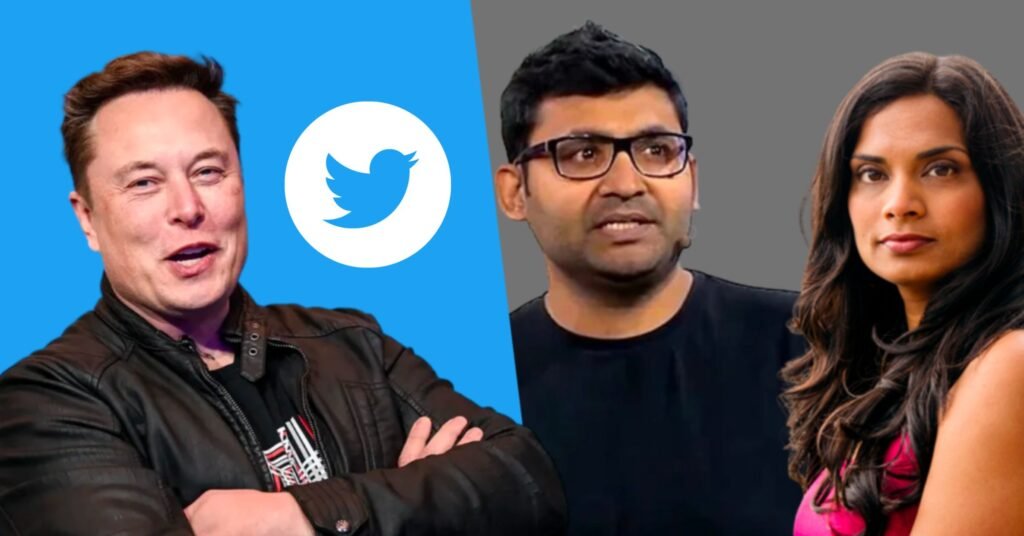
The world’s richest man, Elon Musk, has completed his $44bn (£38.1bn) takeover of Twitter, according to a filing with the US government.
Among Musk’s first moves change in leadership. He has fired chief executive Parag Agrawal, who went to court to hold the billionaire to the terms of a deal he tried to escape. Other departures include Vijaya Gadde, the head of legal, policy, and trust; Chief Financial Officer Ned Segal, who joined Twitter in 2017; and Sean Edgett, who has been general counsel at Twitter since 2012. Edgett was reportedly escorted out of the building.
As reported by Bloomberg, this means Twitter is now a private company that is wholly owned by Musk now that he has completed the deal that saw him pay $54.20 per share in a cash transaction that totaled roughly $44 billion.
Agrawal stepped into the CEO role in November when co-founder Jack Dorsey unexpectedly resigned. Agrawal had been at Twitter for almost a decade, most recently as a chief technology officer, but his run as CEO was quickly disrupted by Musk’s arrival as a major shareholder and increasingly vocal antagonist of its current leadership.
After Musk showed up, it became clear that Agrawal was unlikely to keep his job. “I don’t have confidence in management,” Musk said in one early filing about the deal, and the two executives exchanged some public swipes. In May, Musk replied to a Twitter thread from Agrawal defending the company’s user metrics by tweeting back a poop emoji.
Agrawal confronted him via text. “You are free to tweet ‘is Twitter dying?’ or anything else about Twitter,” he wrote on April 9, but it’s my responsibility to tell you that it’s not helping me make Twitter better in the current context. Musk fired back, “What did you get done this week?” And then: “I’m not joining the board this is a waste of time.”
The following week, in messages with a friend, Musk mocked Agrawal for being on vacation in Hawaii during deal negotiations. “Shouldn’t he be in a war room right now?!?” investor Jason Calacanis messaged Musk. “Does doing occasional zoom calls while drinking fruity cocktails at the Four Seasons count?” Musk replied.
“You are free to tweet ‘is Twitter dying?’ or anything else about Twitter,” Agrawal wrote to Musk on April 9, “but it’s my responsibility to tell you that it’s not helping me make Twitter better in the current context.”
Musk responded by saying “What did you get done this week,” and then he said, “I’m not joining the board this is a waste of time.” He also questioned his decision to go to Hawaii for a vacation during negotiations for the deal.
While the move may be a bit of a shock, Agrawal will still walk away with 100% of his unvested equity awards, meaning he will make an estimated $42 million.
Vijaya Gadde, Twitter’s head of legal, policy, and trust, was in charge of enforcing and creating the rules for the platform, and it looks like some of those plans may be up for some revision.
Musk has previously said he was planning on making it a “less-restrictive platform for free speech,” in a move that he deems is “essential to a functioning democracy.” Some believe these words may mean some users who were blocked from the platform for dangerous and or offensive content, including Donald Trump, may be reinstated under Musk’s regime.
Chief financial officer Ned Segal is another one of the top executives who has officially been cut from the company, and he has been with Twitter since 2017. Lastly, general counsel Sean Edgett is also out, and he had been with the company since 2012. These four likely won’t be the last as Musk is reportedly planning on cutting 5,500 jobs, or 75% of Twitter’s workforce, in the future.
When Agarwal fired other Twitter executives
Back in May, Agrawal had also fired Kayvon Beykpour, who was head of Twitter Product, and Bruce Falck, lead for revenue product at the company. He had posted saying he would continue to make “hard decisions as needed,” and “embrace the deep complexities of our service and our business. And you can expect more change for the better.”
He also tackled the question of people calling him a ‘lame-duck’ CEO given most people expected that Musk would sack him when he took over the company.




